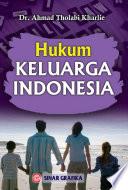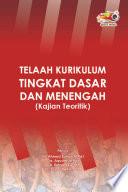
Hukum Keluarga Indonesia
Modernisasi hukum keluarga baru kembali mendapatkan momentumnya pada masa Orde Baru, meski perebutan pengaruh antara kelompok Islam tradisional dan kelompok perempuan reformatif tetap berlangsung sengit. Pada masa ini pun, modernisasi hukum keluarga didorong kuat oleh peran Pemerintah. Hasilnya, diundangkannya Undang-Undang Nomor 1 Tahun 1974 tentang Perkawinan. Undang-undang ini sejatinya merupakan hasil kompromi politik antara kelompok Islam, kelompok perempuan, dan kelompok pemerintah. Secara umum, sesuai dengan misinya, modernisasi hukum keluarga di Indonesia sejatinya mampu mengelola tingkah laku masyarakat Indonesia. Hal ini dapat dilihat dari beberapa aspek modernisasi. Modernisasi hukum keluarga juga telah mampu menekan angka poligami dan perceraian di Indonesia. Selanjutnya, modernisasi hukum keluarga juga berhasil memola tingkah laku masyarakat dalam aspek perkawinan beda agam, relasi suami istri, dan masalah kewarisan sebagaimana diatur dalam KHI. Buku ini sangat bermanfaat menjadi bahan bacaan bagi para mahasiswa dan dosen dari semua fakultas hukum, dan fakultas syariah yang ada di tanah air kita.
- ISBN 13 : 9790075545
- ISBN 10 : 9789790075542
- Judul : Hukum Keluarga Indonesia
- Pengarang : Dr. Ahmad Tholabi Kharlie,
- Kategori : Law
- Penerbit : Sinar Grafika
- Bahasa : id
- Tahun : 2022
- Halaman : 440
- Google Book : https://play.google.com/store/books/details?id=DXGCEAAAQBAJ&source=gbs_api
-
Ketersediaan :
Secara umum, sesuai dengan misinya, modernisasi hukum keluarga di Indonesia sejatinya mampu mengelola tingkah laku masyarakat Indonesia. Hal ini dapat dilihat dari beberapa aspek modernisasi.









